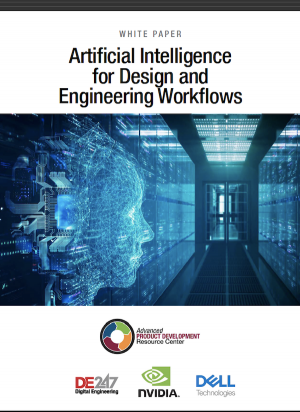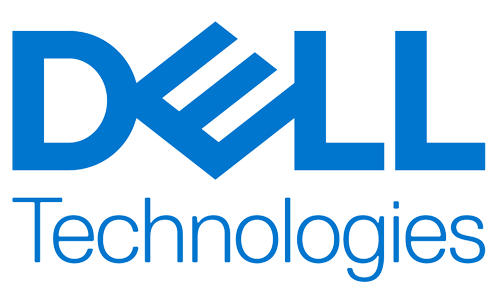
The new Dell Precision 3280 CFF and accessories. Image courtesy of Dell Technologies.
Latest News
April 11, 2024
Artificial intelligence (AI) is rapidly being woven into engineering workflows and other types of applications. In order to effectively utilize the technology, organizations will need to be able to corral large amounts of data and run complex algorithms. Professional engineering workstations will play a key role in this process. At the recent Mobile World Congress event in February and NVIDIA GTC conference in March, Dell Technologies announced new professional-grade Precision workstations and AI-based offerings that are designed to help engineering organizations make this transition.
“Every company that wants to remain competitive will have to implement AI in some way, and AI PCs will be central to that,” said Sam Burd, president, Client Solutions Group, Dell Technologies, in a press release. “From running complex AI workloads on workstations to using day-to-day AI-powered applications on laptops, the AI PC will be an important investment that pays dividends in productivity and paves the way to a smarter, more efficient future. Dell’s advantage starts with offering more AI PCs across the commercial portfolio from day one, giving customers the ability to start future proofing for AI today.”
At the Mobile World Congress in Barcelona, Dell announced the latest versions of both its tower and mobile workstations that can run complex AI workloads.

The new workstations include:
- The Dell Precision 3280 Compact Form Factor workstation, which the company says is the world's smallest workstation that supports Tensor Core GPUs. It supports up to the Intel Core i9, NVIDIA RTX™ 4000 Ada Generation GPU , 64GB of DDR5 memory, and up to 8TB of RAID storage.
- The Dell Precision 3680 Tower Workstation, which supports up to the 14th Gen Intel Core i9K CPU, up to 128GB of memory, and up to 28TB of storage. On the GPU front, it supports up to the NVIDIA RTX 6000 Ada Generation GPU.
- Dell also introduced the Precision 3490 (14-in.), 3590 (15-in.), and 3591 (15-in.) mobile workstations. The 3490 and 3590 models support the new NVIDIA RTX 500 Ada Generation Laptop GPU, while the 3591 supports the NVIDIA RTX 500,RTX 1000, and RTX 2000 Ada Generation Laptop GPUs.
- The Dell Precision 5490 (14-in.) and 5690 (16-in.) mobile workstations support up to the Intel Ultra 9 185H processor (16 cores), and the 5490 supports the NVIDIA RTX 1000, 2000 and 3000 Ada Generation Laptop GPUs. The Precision 5690 is available with the NVIDIA RTX 1000, RTX 2000, RTX 3500, RTX 4000, and RTX 5000 Ada Generation Laptop GPUs.

All of the new devices include the Dell Optimizer for Precision AI-based software that enhances and improves application and device performance based on user workflows.
According to a blog written by Charlie Walker, Dell Senior Director and General Manager of the Precision and rugged product lines, the new NVIDIA RTX™ 500 and 1000 Ada Generation laptop GPUs provide the new mobile workstations with powerful AI, ray tracing and graphics capabilities. You can learn more about the new NVIDIA RTX laptop GPUs in this NVIDIA blog.
Both the 3000 and 5000 Series mobile workstations “boast a combined integrated multi-processor package of Central Processing Unit (CPU), Neural Processing Unit (NPU) and Graphics Processing Unit (GPU), designed to enhance the performance of AI features in more than 100 applications, enabling them to operate with optimized speed and power efficiency.”
According to the Dell blog, this combination of processors can reduce power consumption in the laptops and improve performance of media-intensive AI workloads.
New AI Tools
A few weeks later at the NVIDIA GTC event, Dell announced that it is expanding its generation AI solutions to include the new Dell AI Factory with NVIDIA.
“Our enterprise customers are looking for an easy way to implement AI solutions – that is exactly what Dell Technologies and NVIDIA are delivering,” said Michael Dell, founder and CEO, Dell Technologies, as part of the announcement. “Through our combined efforts, organizations can seamlessly integrate data with their own use cases and streamline the development of customized GenAI models.”
According to the company, Dell AI Factory with NVIDIA is an “end-to-end AI enterprise solution that integrates Dell’s compute, storage, client device, software and services capabilities with NVIDIA’s AI infrastructure and software suite, all underpinned by a high-speed networking fabric.”
With the new Dell AI solutions, the company claims its clients will be able to more effectively and efficiently integrate AI into a wide variety of workflows.
The Dell AI Factory with NVIDIA supports a variety of AI use cases and applications including model creation and tuning, augmentation and inferencing. The solution can also be enhanced with professional services to help customers with data preparation, implementation and adoption of AI Factory.
In addition, Dell announced Dell Generative AI Solutions with NVIDIA – Retrieval-Augmented Generation (RAG), which leverages new microservices in NVIDIA AI Enterprise to offer what the company describes as a pre-validated, full-stack solution to speed enterprise AI adoption with RAG, and improve GenAI model quality. Dell is also offering a full-stack solution powered by NVIDIA for building custom, domain-specific AI models, and a Dell Data Lakehouse for analyzing data across hybrid and multi cloud environments.
At GTC, Dell also announced it was working with NVIDIA to introduce a rack-scale, high-density, liquid-cooled architecture based on the NVIDIA Grace Blackwell Superchip, and that its Dell PowerEdge XE9680 servers will support new NVIDIA Blackwell GPUs as well as H200 Tensor Core GPUs and NVIDIA Quantum-2 InfiniBand and Spectrum-X Ethernet networking platforms.
More Dell Coverage

More NVIDIA Coverage
Subscribe to our FREE magazine, FREE email newsletters or both!
Latest News








